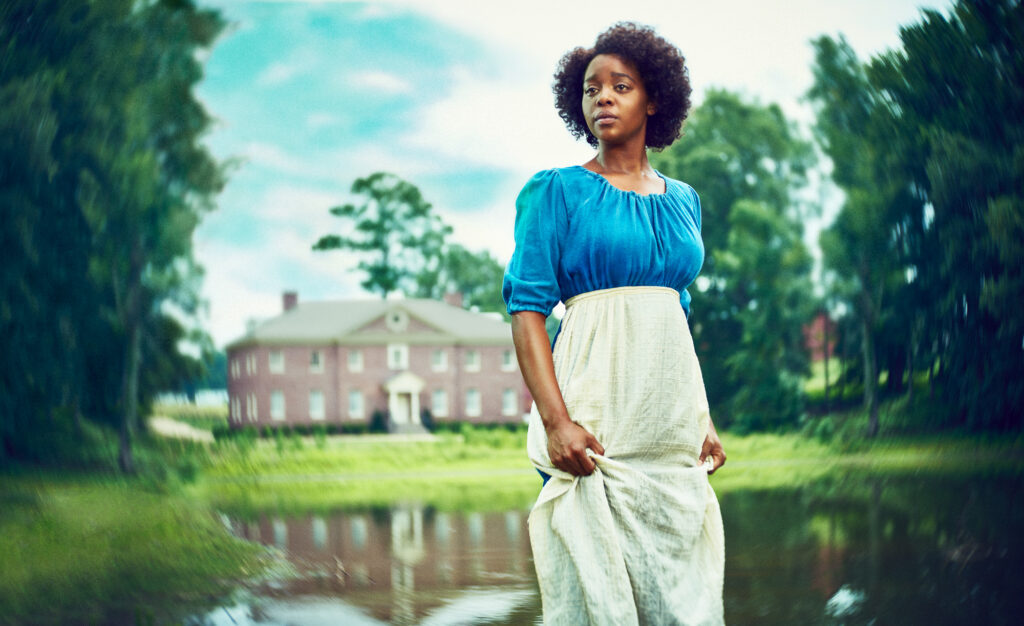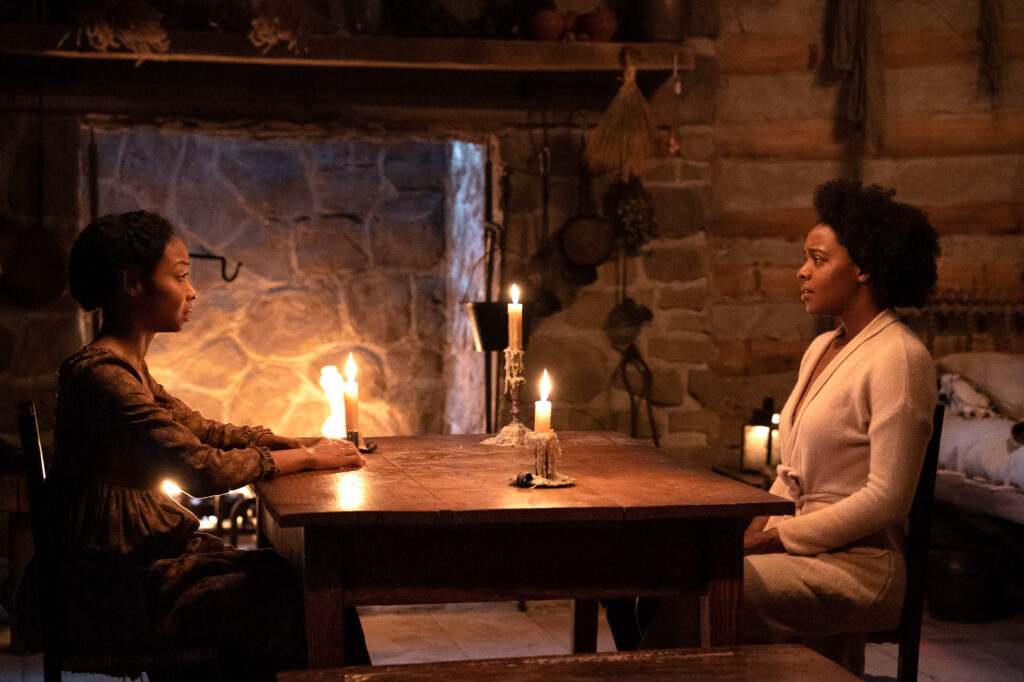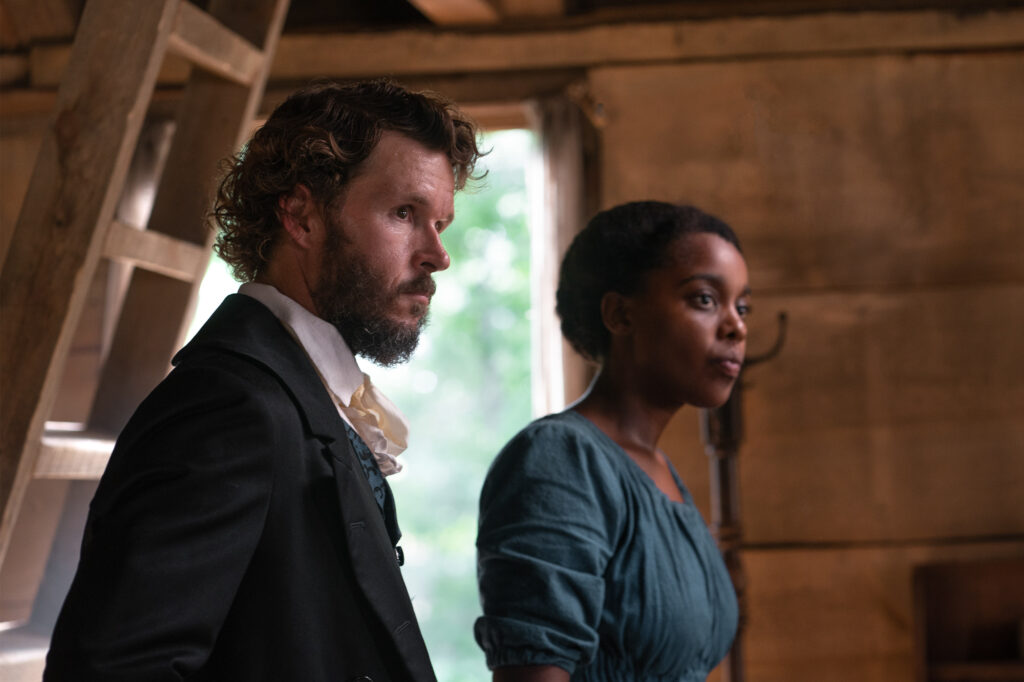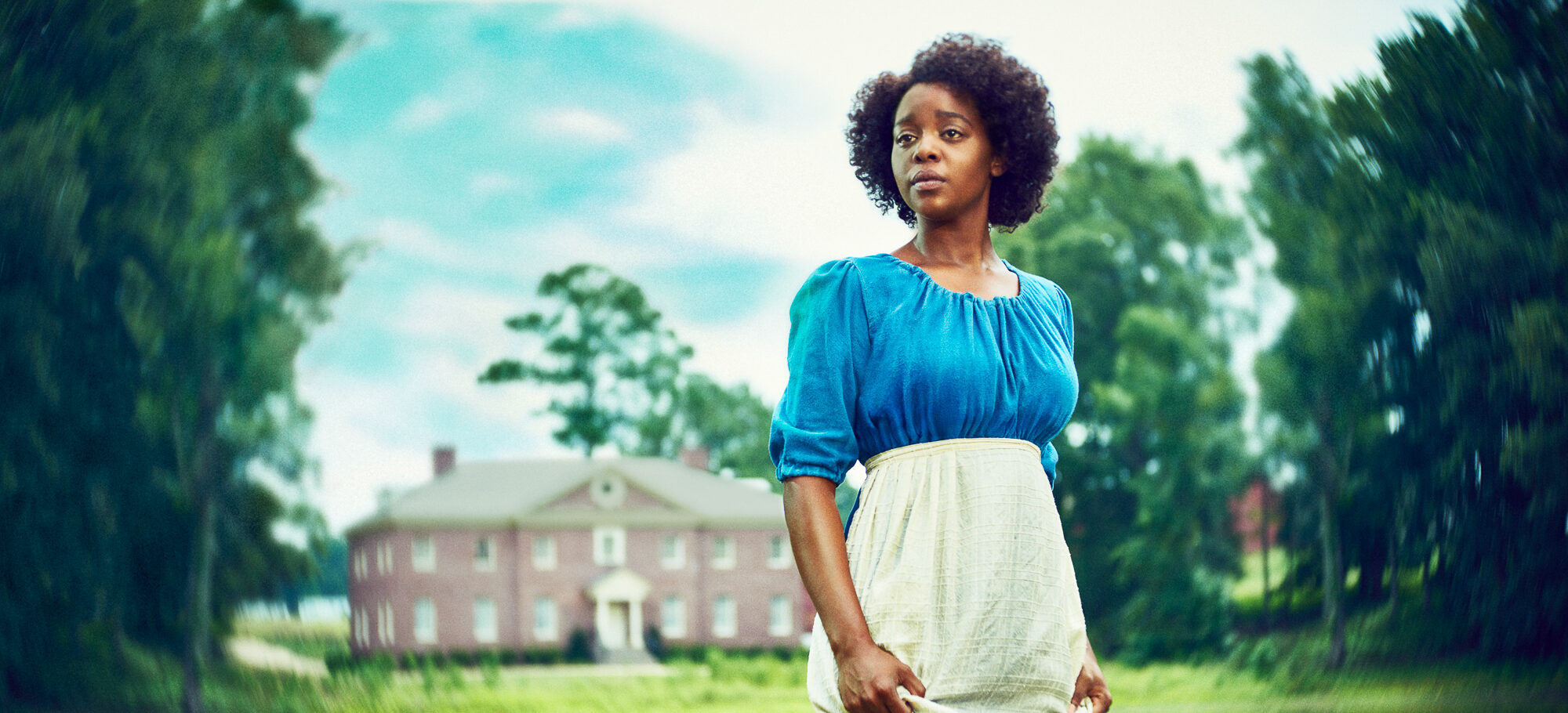What if you were trapped between the modern world and slavery days in America through involuntary time travel? That’s the concept of “Kindred,” the beloved sci-fi novel by the late Octavia E. Butler first published in 1979. The book has now been made into an eight-episode limited series of the same name. It premieres as an FX on Hulu show on December 13.
In the “Kindred” TV series, which is a faithful version of the book, a 26-year-old Black woman named Dana James (played by Mallori Johnson) moves from New York City to Los Angeles to become a screenwriter. The year is 2016. No sooner has Dana moved into her new home when her world shifts to 1815 and life as an enslaved woman on a Georgia plantation. She is pulled back and forth between these two time periods in a seemingly random way.

A series of harrowing events ensue, including one involving Dana’s attempts to solve the time-travel mystery and escape from the racist family who owns the plantation. Secrets from her family’s past also emerge. Unlike many scripted TV shows that have enslavement of Black people as a major part of the story, “Kindred” is supported by Black women as the majority of the show’s directors. NABJ Black News & Views recently chatted with “Kindred” star Johnson and showrunner Branden Jacobs-Jenkins about making this riveting and meaningful adaptation of Butler’s book.
What surprised you the most in making “Kindred”?
Johnson: What surprised me the most was definitely the emotional journey of the series. Of course, when I read the material, I knew that it was going to be a lot. I knew it was going to require a lot of me.
But the more it went on, the more I found that I was unraveling in so many different ways. I felt like I grew up on the show too, throughout the process. As the show went on, in each episode, I just unlocked more and more things in myself as an actor and as an artist … I just never thought it would have such an insidious impact on me in the way that it did, but I’m glad it did.
Jacobs-Jenkins: I was really surprised by how hot Atlanta could get. There were some days where I was like, “How are we doing this right now?” I was really surprised by how many people out there are really waiting for the show and are so devoted to this book. We had so many people on our crew who were absolutely Octavia Butler stans.
And it was very motivating to come to a place where it was more than a job for a lot of people. It was really a fulfillment or honoring of her legacy. It really touched me. Our production office was covered in posters of her (Octavia Butler’s) face on day one. I’ve always loved this book, but it’s always such a surprise when you find your devotion matched in someone else.

“Kindred” was filmed in Georgia at some locations where barbaric enslavement happened in real life. Mallori, you and the other people on the “Kindred” team have talked about how knowing the history of these locations had a deep emotional impact. How did you personally deal with it, since you were fully immersed in the role of someone experiencing slavery as part of her life?
Johnson: There were days when I wasn’t coping with the emotional journey of the show. It’s such a huge and kind of devastating thing to experience and remember what my ancestors have gone through. To actually see and recreate it is something unlike what you think it will be when you step into something like that. But at the end of the day, when we got to the end of the show, I felt myself exhausted, tired, feeling what I felt my character carried throughout the show.
There was something about that that I found kind of beautiful, actually. I kind of welcome that as an actor. Maybe that’s not healthy, but I think it’s a beautiful thing. I like inviting characters into me. I like inviting that emotional heaviness into me, because every time I tell stories like this — especially stories that are true history and are true to how I’ve gotten here on this land — I feel like I’m holding a candle for the people who have experienced that. It was something that I really value.
What do you think about critical race theory? And how did critical race theory possibly affect how you approached making “Kindred”?
Jacobs-Jenkins: As someone who has actually studied critical race theory, the way it’s understood in the mainstream is not exactly accurate. Critical race theory, as I understand it, didn’t affect the project. But I think we shared a real interest in giving dimension and truth in the way that we think about slavery in the popular imaginary. I always say that nothing has done more harm to our ability to understand our history in regard to this subject than film and television.
I think Octavia Butler wrote this book to make an intervention in the literature at the time. She had no real resources. She researched these things herself. We had a similar impulse. We want to make something that makes us think about slavery differently, makes us think about American history differently, makes us think about American identity differently.

Branden, you wrote Episodes 1 and 2 and co-wrote Episode 8 of “Kindred.” You also hired a diverse group of writers and directors for the series, including mostly Black women as directors. What would you like to say about these hiring decisions?
Jacobs-Jenkins: I was really interested in trying to get as wide a swath of artists involved as possible. Among our directors, we have a Black British woman [Destiny Ekaragha]. Janicza Bravo, who directed our pilot, is of Panamanian heritage and grew up in Brooklyn. It was all about exploding any essentialist ideas of what a Black artist is. Ayoka Chenzira, who directed (“Kindred” Episodes 4 and 5) is a pioneering filmmaker, a contemporary of Julie Dash and Arthur Jafa.
They’re as qualified as anyone. But also, I was interested in putting different people, with different stakes in the story, in conversation with each other. I didn’t want to create some sort of dogmatic, homogenous kind of world. I really wanted something that felt prismatic and dimensional. It had to start at the hiring. It had to start with the leadership and the artists at the top.
We chose to be in Atlanta, partly because it’s one of the most diverse filmmaking communities in the country. And that goes for camera folk to department heads. Some of the most qualified people are in fact people of color in Atlanta. And so, it just made the job that much easier.
What would you say to people who might be hesitant to watch “Kindred,” because they think there are already too many TV shows and movies that depict enslavement of Black people?
Johnson: I would say that this isn’t just a story about slavery. It’s not a retelling of history. This is a story where a young woman of today has the ability to change history. It’s told with a different perspective. It’s told with a fresh perspective, a modern perspective, with a reflective sight. We’re not just reiterating things that have already been said or been done. It’s kind of revolutionary in the way that it’s told.
At the same time, I do understand if people don’t want to see that … If it’s too much for people, then that’s okay. But at the same time, everyone who has made this show has worked on it with care, with respect, with consideration. We’re not making a spectacle of what slavery was, the trauma of what slavery was. We’re actually showing it in a different, prideful and upheld light. It’s really dignified to me.
Jacobs-Jenkins: In response to the folks who think there’s too much of this (slavery) stuff out there, I would argue that there’s not. The only people who get asked that question or told that there’s a quota on what they can write about are Black creatives. No one tells people to stop making television shows about wealthy white families who do evil stuff.
My thought is that you don’t have to watch anything you don’t want to watch. We welcome you to watch it. Take your time. There’s no rush. Read the book first if you’re curious. I really want us to examine that impulse to police the work that Black artists get to make about their history.








